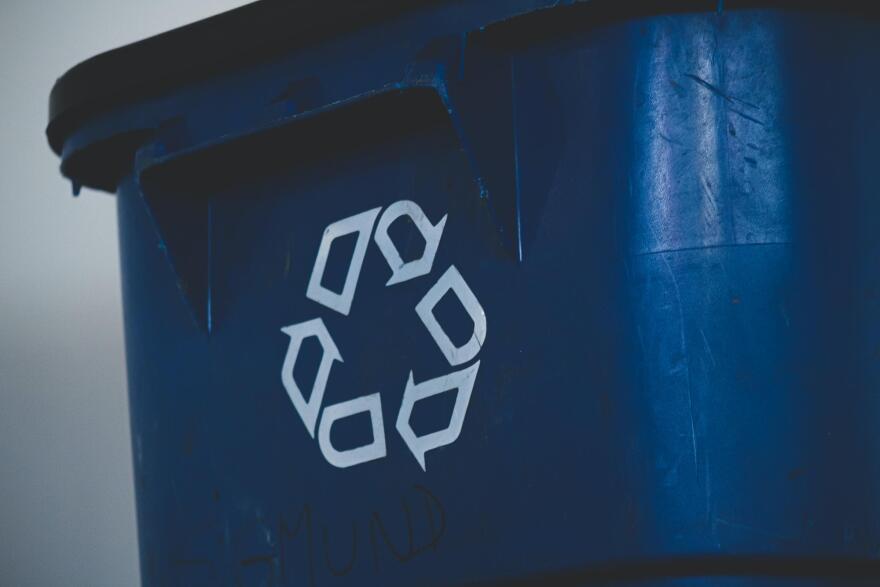That people are so prone to ask, “Can this be recycled?” reflects a change in societal thinking.
The federal government reports that the country’s recycling rate has more than quadrupled over the last 60 years, from 7 percent in 1960 to above 30 percent today. Nevada lags in that effort, with the state yet to meet a 25 percent recycling goal that was set in 1991.
Even as product packaging frequently includes a message to recycle, what can and can’t be diverted from the trash stream remains a vexing question. Republic Services, the main waste removal company in Southern Nevada, has even published a five-page flier on what goes where.
During an hourlong discussion on State of Nevada, a group of recycling experts made these points:
WATCH THE PLASTICS: About 30 percent of what gets put in recycling containers should be disposed of in the trash, said Jeremy Walters, community relations manager for Republic Service. And among that, flexible plastics are the biggest offenders.
“Plastic comes in many shapes and sizes,” he said, “and one of the big misconceptions is that just because something's plastic, is that it's recyclable. And that's not the case.”
Among the plastics to keep out of the recycling bin: grocery bags, bubble wrap plastic wrap, air-filled pillow packs used in shipping by online merchants. Plastic bottles with the Nos. 1, 2 or 5 on the bottom are recyclable.
WATER GETS RECYCLED: Water treatment allows for resue of water in Southern Nevada, something that helps keep the state below its Colorado River allotment.
“All of our indoor water use gets recycled, reclaimed, and safely returned to Lake Mead,” said Bronson Mack, a public information officer for the Southern Nevada Water Authority. The problem, he said, is water that goes onto grass that nobody walks on, landscape irrigation runoff, and generally overwatering.
MAKE IT EASY: While industrial-scale recycling operations are obviously important, said UNLV sustainability coordinator Tara Pike, government and private entities can foster recycling at the front end.
“When I think about recycling infrastructure, I think about recycling bins that are easily accessible by the community at any given time in their day,” Pike said. “So if you're walking around downtown, is there a recycle bin available for you to use? If you're walking down the sidewalk at UNLV, is there a recycle bin for you to use. When I think about infrastructure, I think about the collection aspect of it.”
SPAGHETTI, PIZZA HEARTBURN: Despite being made out of cardboard, a pizza box cannot be recycled if it has absorbed grease or is otherwise soiled. Also, recycling a glass jar before emptying and gently rinsing runs the risk of spoiling anything that gets wet.
“A pasta sauce jar that still has an eighth of the pasta sauce in there and it spills on paper and cardboard, we have to throw it away,” Walters said.
Tara Pike, sustainability coordinator, UNLV; Jeremy Walters, community relations manager, Republic Services; Bronson Mack, public information officer, Southern Nevada Water Authority










